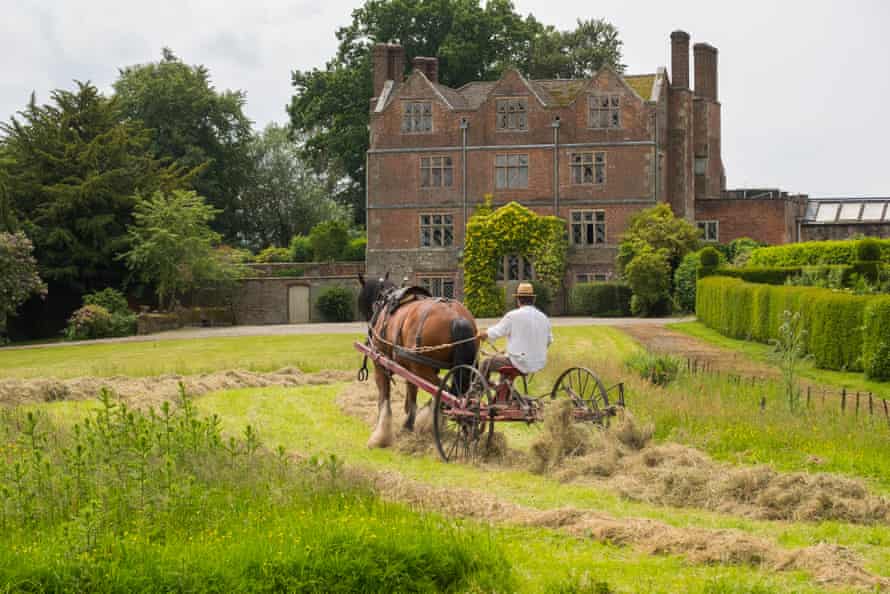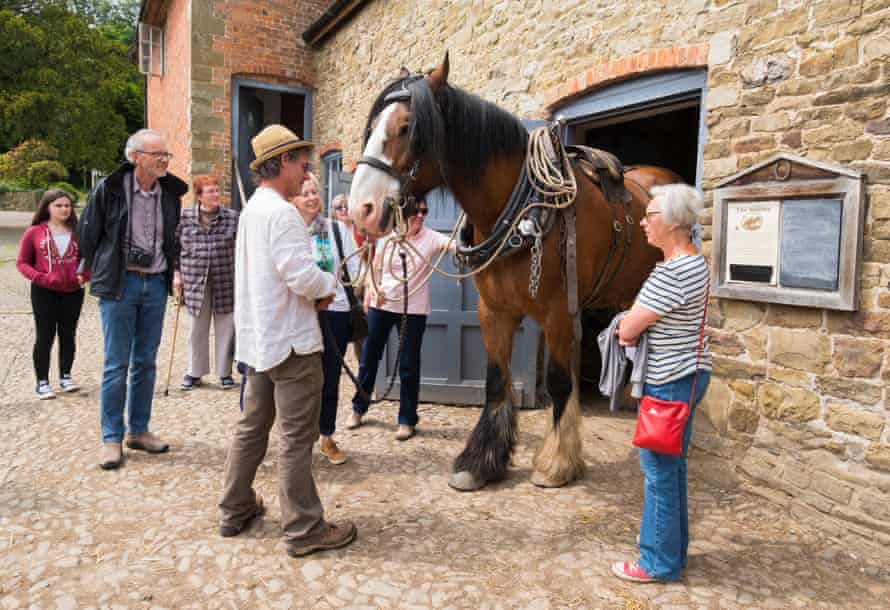Of the handful of historic working farms in the UK, Acton Scott Farm is perhaps the best known. The Shropshire farm was the setting for the BBC series Victorian Farm, and generations of schoolchildren have visited the rolling Shropshire hills to see the shire horses plough the fields and the dairymaid milk the cows.
Yet the future of the farm is in serious doubt. Shropshire council, which runs the farm, shut it down in June after an outbreak of E coli and there are no plans to reopen it.
In the coming weeks, the council will launch a consultation inviting the public to come up with ideas about how to fund Acton Scott Farm, which it says loses £168,000 a year.
But campaigners are desperate to ensure the survival of England’s first historic working farm, where workers in period costume demonstrate traditional skills and use horse-drawn ploughs to work the land and manage the rare breed livestock.

Already there are concerns among the villagers in Church Stretton that the decision has in effect been taken.
Shropshire council’s cabinet had been due to consider an “options appraisal” in November, but the decision was delayed by the byelection caused by Owen Paterson’s resignation as the MP for North Shropshire. This month’s consultation was announced only after a local campaign had begun.
Some of the farm animals have already been sold. The flock of six pygmy goats is gone. Of the five Gloucester Old Spot pigs, only two are left. The Shropshire sheep, the Dairy Shorthorn cattle and the pair of magnificent shire horses remain, as do the ducks, geese and chickens, although they are in lockdown to avoid becoming infected with bird flu. Shropshire council said that animals are sold regularly as part of the farm’s stock management programme and the majority of the rare breed animals have remained.
The campaign to save the farm was started by Alice Walker, a barmaid in Church Stretton who has been a regular visitor since she was a child.
“It’s a really special place,” she said. “You can see them tacking up the horses and ploughing the ground, then drilling it with old drills. We have visitors from all over – Australia, America – there’s a big Canadian following.”

The farm was founded in 1975 by Tom Acton, whose family has owned the farm estate for more than 900 years. His ancestor, Richard Acton, built the family’s Elizabethan manor house in 1580.
Acton, who died last year aged 95, had been keen to retain traditional farm methods and had built a collection of Victorian seed drills and ploughs.
It was picked by the BBC for Victorian Farm, a series charting a year when the historian Ruth Goodman and archaeologists Alex Langlands and Peter Ginn lived on the farm reliving the experience of Victorian farmers. The farm also offers training and qualifications in traditional rural crafts and trades, from stone masonry to wheelwrighting, and Walker did an NVQ there when she was young.
“We started to hear whispers,” Walker said. “We had the Covid closures, and then the E coli outbreak. I thought it was slipping off the radar and it might have closed without anybody realising it was even an option. So I started a group.
“I thought it would be me and my mum shouting in a room, but we had 1,000 Facebook members in less than a month.”
The group has had all sorts of support – from a woman whose mother donated her old English game chickens to the farm when it opened to people whose grandfather was educated in the schoolhouse.
The Rare Breed Survival Trust has also offered its support, and the chief executive, Christopher Price, wrote to the council last month, urging it to “ensure that the farm remains safeguarded for the future”.
The E coli outbreak in June involved two visits and a council health and safety report recommended “essential works” costing £130,000 were required.
Shropshire council said that visitor numbers peaked at around 45,000 a year in 2009, when Victorian Farm first aired. However, since then, numbers have fallen to an average of 20,000 a year since 2014, the council said.
A spokesperson said: “Shropshire council, like many other local authorities, is facing an extremely challenging financial future and it is in this climate that an options appraisal has been undertaken to determine whether an alternative commercially viable model is achievable.”
Cecilia Motley, Shropshire council’s cabinet member for communities, culture, leisure and tourism, and transport, said: “Shropshire council recognises the value Acton Scott holds for many people and is committed to supporting the landowners and the local community over the coming months and we look forward to hearing thoughts and suggestions when we open discussion in the new year.”
Francis Acton, for the Acton Scott Estate, said: “It is clear that there is a large community who have a great affection for the historic working farm. The Acton family will support the consultation and work with Shropshire council to explore future options.”
Post a Comment